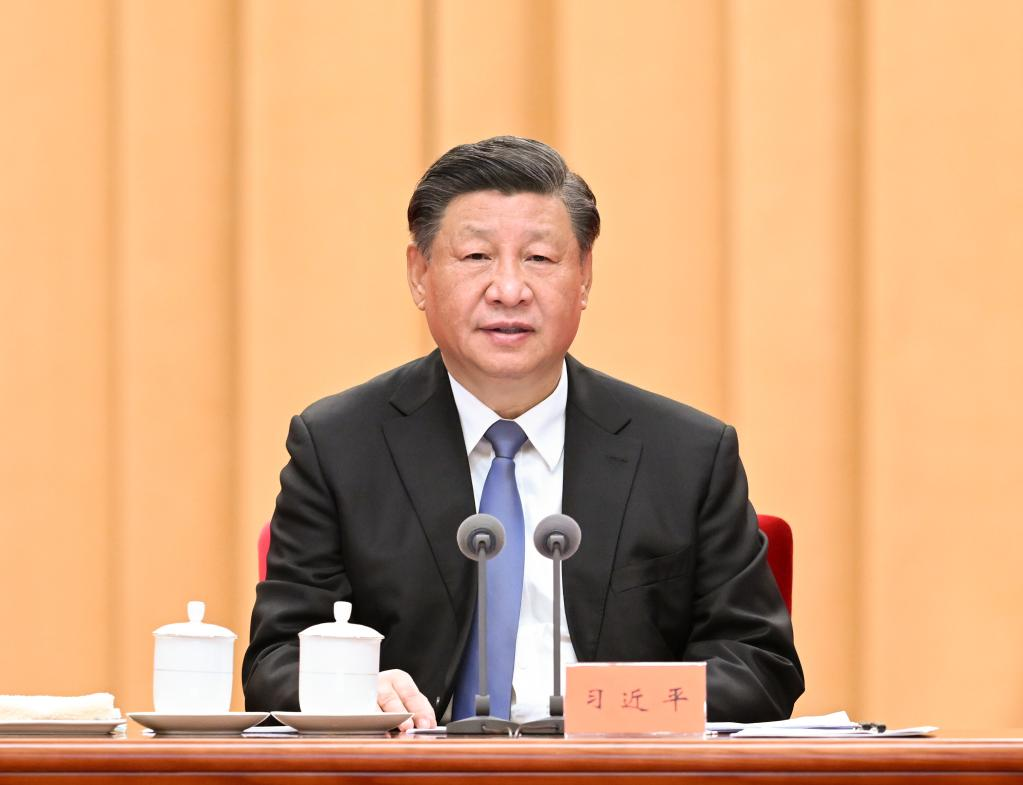Xi emphasizes zero tolerance for corruption
By CAO DESHENG | CHINA DAILY | Updated: 2023-01-10 07:01

Anti-graft fight serious and complex, general secretary tells top watchdog
Xi Jinping, general secretary of the Communist Party of China Central Committee, stressed on Monday the need to further exercise full and rigorous governance over the Party and vowed zero tolerance for corruption.
Xi, who is also China's president and chairman of the Central Military Commission, made the remarks while addressing the second plenary session of the 20th CPC Central Commission for Discipline Inspection, which opened in Beijing on Monday.
Stressing that the situation in the battle against corruption remains serious and complex, Xi said that resolute efforts must be made to investigate and deal with corruption that involves both political and economic elements, and to resolutely prevent leading officials from acting on behalf of any interest groups or powerful groups.
He called for preventing collusion between officials and businesspeople and guarding against infiltration by capital into the political field in order to prevent such wrongdoings from undermining the political ecosystem or economic development. Laws and regulations to punish bribery should be further improved, he added.
Since the 18th CPC National Congress in 2012, the CPC Central Committee has made continuous efforts to improve Party conduct, uphold integrity and combat corruption with unprecedented courage and resolve.
As a result of high-profile anti-corruption campaigns, some 81,000 people have voluntarily surrendered to disciplinary inspection and supervision agencies over the past five years, Xinhua News Agency reported.
Addressing the 20th CPC National Congress in October, Xi said, "As the largest Marxist governing party in the world, we must always stay alert and determined to tackle the special challenges that a large party like ours faces, so as to maintain the people's support and consolidate our position as the long-term governing party."
Within just over a month after the closing of the 20th CPC National Congress, more than 10 officials who were suspected of severe violations of discipline and laws had turned themselves in.
At Monday's meeting, Xi emphasized that exercising full and rigorous self-governance over the Party is a long-term, strategic issue that matters to the Party's long-term ruling of the country, the nation's long-lasting stability and the people's well-being.
He urged continuous efforts to achieve the strategic goal that officials do not dare, are not able and have no desire to become corrupt.
Strong political supervision must be conducted to ensure that the decisions and policies unveiled at the 20th CPC National Congress are faithfully implemented, he added.
Xi also called for continuous efforts to implement the "eight-point decision on improving conduct", which was first made public in December 2012 and targets formalism, bureaucratism, hedonism and extravagance and seeks to rein in privilege-seeking attitudes and behavior.
In order to improve Party conduct, Xi said consistent and sustained efforts should be made to identify problems specific to certain areas, sectors and periods of time, and to go to great lengths to tackle prevalent and recurrent problems.
Tackling formalism and bureaucratism should be given greater prominence as a significant task in improving Party conduct, he added.
Xi underscored the importance of tightening Party discipline and urged Party officials to stick to the Party Constitution.
While stressing the Party's unified leadership over anti-corruption work, Xi also urged disciplinary inspection and supervision departments to assume their responsibilities and effectively fulfill their duties in the tough and protracted battle against corruption.
Members of the Standing Committee of the Political Bureau of the CPC Central Committee Li Qiang, Zhao Leji, Wang Huning, Cai Qi and Ding Xuexiang attended the meeting.
Li Xi, also a member of the Standing Committee of the Political Bureau of the CPC Central Committee and head of the CCDI, presided over the meeting.
























